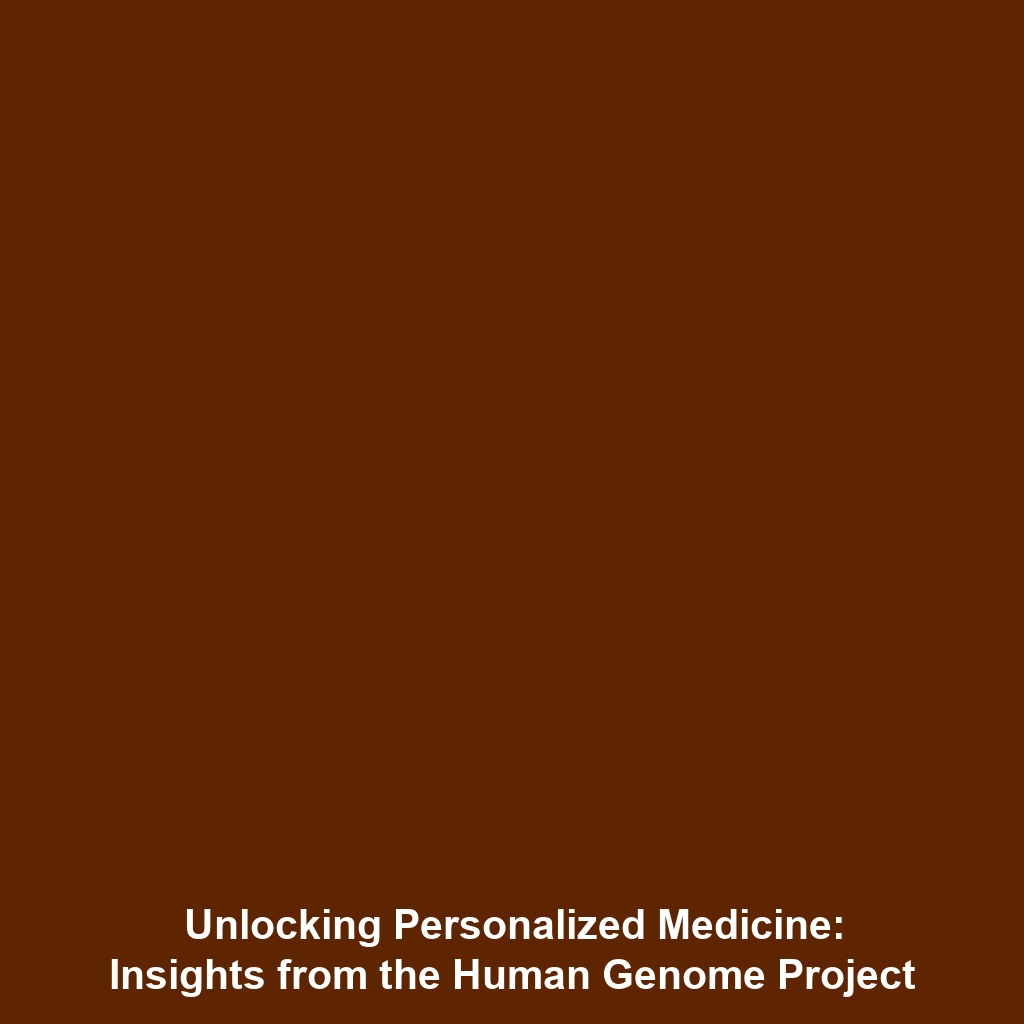Personalized Medicine: The Future of Healthcare in the Context of the Human Genome Project
Personalized Medicine represents a transformative approach in healthcare, tailoring medical treatment to the individual characteristics of each patient. Rooted in the extensive data generated by the Human Genome Project, this innovative field aims to enhance patient outcomes through genomics and targeted therapies. Understanding Personalized Medicine is crucial, as it intersects with the groundbreaking insights gained from mapping the human genome, promising a more effective and individualized health management system.
Key Concepts of Personalized Medicine
The principle behind Personalized Medicine is the customization of healthcare, with a focus on the following key concepts:
- Genomic Data Utilization: Leveraging DNA sequencing to understand genetic makeup.
- Targeted Therapies: Developing treatments based on genetic variations that influence a patient’s response to drugs.
- Predictive Analytics: Utilizing genetic information to predict disease susceptibility and treatment outcomes.
These concepts align closely with the broader objectives of the Human Genome Project, centered on unraveling the complexities of human genetics and applying this knowledge to real-world healthcare challenges.
Applications and Real-World Uses
Personalized Medicine is making waves in multiple areas of healthcare, with notable applications linked to the Human Genome Project. Some significant uses include:
- Oncology: Genetic profiling of tumors enables the selection of targeted therapies, improving survival rates.
- Cardiology: Tailoring cardiovascular treatments based on genetic predispositions related to heart disease.
- Pharmacogenomics: Customizing medication types and dosages according to individual genetic responses.
These applications exemplify how Personalized Medicine enhances treatment efficacy, revolutionizing healthcare as we understand it.
Current Challenges in Personalized Medicine
Despite its potential, the field of Personalized Medicine faces several challenges:
- Data Privacy Concerns: The handling and storage of genetic data must address privacy issues.
- Cost of Genomic Testing: Genetic testing remains expensive and may not be covered by insurance plans.
- Lack of Standardization: The absence of standardized protocols can hinder the consistent application of Personalized Medicine.
These challenges highlight the complexities involved in the implementation of discoveries from the Human Genome Project into everyday clinical practice.
Future Research and Innovations
The future of Personalized Medicine is promising, with ongoing research leading to innovative breakthroughs:
- Artificial Intelligence: AI algorithms are increasingly used to analyze genomic data quickly and accurately.
- CRISPR Technology: Advancements in gene-editing technology hold potential for repairing genetic defects.
- Wearable Health Technology: Continuous health monitoring could provide real-time genomic data for better personalized treatment.
These innovations are expected to further integrate discoveries from the Human Genome Project into practical healthcare solutions.
Conclusion
In summary, Personalized Medicine stands at the intersection of genetics and innovative healthcare solutions, utilizing the Human Genome Project’s discoveries to tailor medical treatments for individual patients. As we advance, overcoming the existing challenges will be crucial for realizing the full potential of this transformative field. To learn more about the impact of genomics on healthcare, explore our sections on genetic testing and current genomics research.
